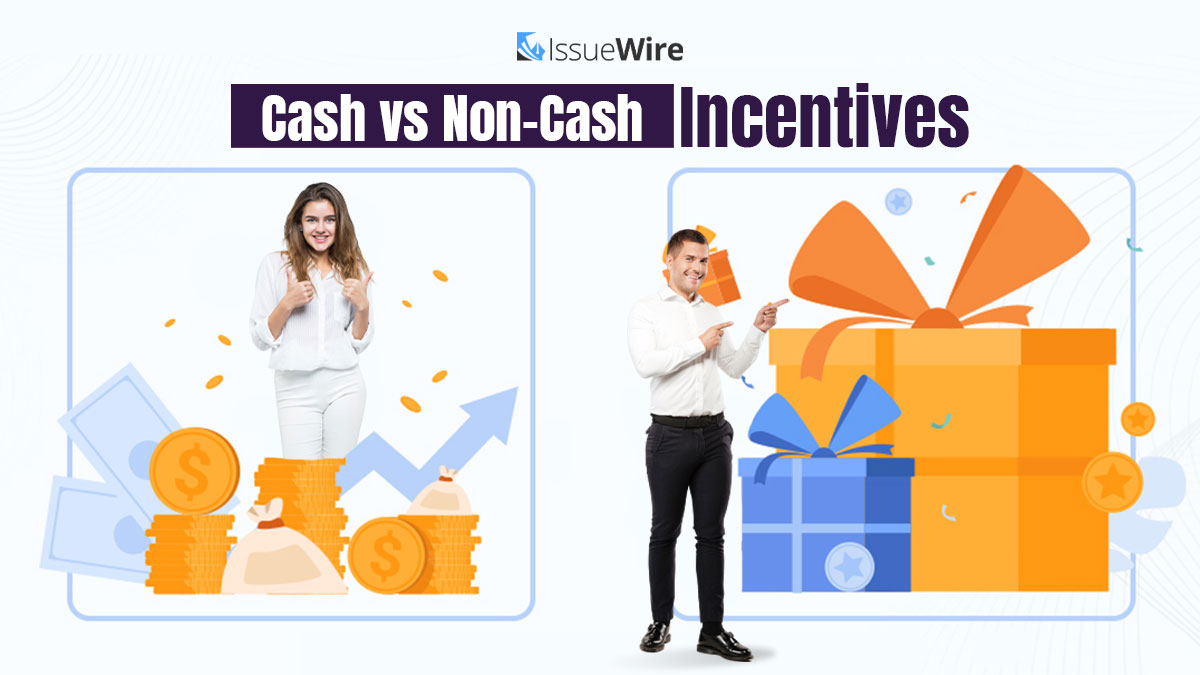Incentives boost employee motivation, but choosing cash or non-cash rewards depends on your team. Cash offers flexibility, while non-cash rewards like gift cards or time off often create deeper emotional value and connection.
So, let’s break down both types and share tips to help you build an effective reward system.
Understanding Cash Incentives
Cash incentives are money rewards that recognize hard work, like bonuses or commissions. They are direct and motivating. A Gallup report shows cash rewards often work better than raffles or giveaways because they feel personal, immediate, and meaningful to employees.
Different Types of Cash Incentives:
- Bonuses: Instant and performance-based rewards
- Salary Increase: Long-term pay boost
- Profit Sharing: Shared success with employees
- Commissions: Tied to sales and revenue
- Spot Bonuses: Quick cash for great work
- Project Incentives: Rewards for key results
Benefits of Cash Incentives -
Cash incentives remain powerful for motivating employees. They send a clear message: hard work matters and gets noticed.
- Flexible and Simple - Cash fits everyone’s needs, whether saving, paying bills, or treating themselves.
- Strong Link to Results - Rewards tied to goals boost motivation and effort.
- Easy to Manage - No complex systems; just decide the amount and payout.
- Instant Impact - Spot bonuses surprise and recognize effort right away, lifting morale.
- Fair and Neutral - No worries about personal preferences or dislikes.
- Clear Tracking - Leaders can easily measure if bonuses improve performance and prove ROI.
Drawbacks of Cash Incentives -
Cash incentives work well, but they are not without downsides. Over-relying on them can shift focus and even hurt morale.
- Short-lived Impact - The excitement fades fast after spending.
- ‘What’s in it for me?’ Mindset - Can reduce teamwork and long-term thinking.
- Becomes Expected - Regular bonuses lose surprise value.
- Feels Transactional - Lacks personal touch or emotional connection.
- Can Fuel Unhealthy Competition - This may lead to tension, burnout, or credit battles.
- Budget Limits - If not everyone is rewarded, it can cause resentment.
Understanding Non-Cash Incentives
Non-cash incentives reward employees without money, creating a lasting emotional impact. From thank-yous to trips, these build connection and appreciation. Unlike cash, moments like public praise or surprise time off stay memorable longer.
Different types of Non-Cash Incentives:
- Employee Recognition: Honors achievements
- Development Opportunities: Support growth
- Flexible Work: Supports work-life balance
- Benefits and Wellness: Prioritize well-being
- Experiential Rewards: Travel and events
- Physical Gifts: Branded merchandise
Benefits of Non-Cash Incentives -
Non-cash incentives offer benefits beyond simple motivation. These perks build deeper employee engagement and connection.
- Personal and Thoughtful - Tailored to individual experiences, showing you value the person, not just their work.
- Emotional Impact - Meaningful rewards create lasting memories stronger than money.
- Boost Intrinsic Motivation - Employees feel more connected to the company’s mission through value-driven recognition.
- Reinforce Company Culture - Rewards can highlight collaboration, learning, or wellness, reflecting core values.
- Flexible and Inclusive - Not everyone is motivated by cash, so offering varied rewards reaches different personalities and preferences.
Drawbacks of Non-Cash Incentives -
Non-cash incentives have some challenges to consider.
- May Lack Immediate Value - Gifts or events might not feel as valuable as cash, especially for those with financial stress.
- Can Seem Unfair - If rewards depend on visibility or manager bias, it may feel inconsistent.
- Hard to Measure ROI - Non-cash rewards don’t directly link to performance like cash does.
- Logistical Effort - Planning experiences or managing rewards takes time and coordination.
- Not One-size-fits-all - What excites some may not appeal to others, so personalization is important.
It is not cash versus non-cash, but knowing what motivates your team. Mix rewards to keep them valued and engaged!








